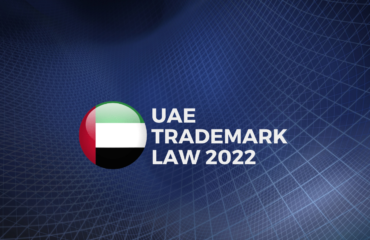
Announced on the 21st of November 2019, the new DIFC IP law is a vital step by the Dubai government to strengthen the Emirate’s legal structures, with regards to the protection of intellectual property rights (IPRs).
With the new law, it is clear that the Dubai government is resolute on making the Emirate a force to reckon with at the international level.
However, several questions are still looming over the new law. In the last two weeks, we have received many questions from associates and business owners.
However, below are three of the most common questions we have received:-
- What does the new DIFC IP Law mean?
- What does it mean for investors?
- How will it affect existing businesses?
In this article, we will be answering these questions as a basis to analyze the new law
So, What Does The New DIFC IP Law Mean?
It is what it is; a new IP law for businesses operating within the Dubai International Financial Centre (DIFC).
The newly-enacted law has been designed to cover all aspects of intellectual property law and to align the Emirate’s existing laws with international treaties and global standards.
The areas covered include Patents, Utility Certificates, Industrial Designs and Drawings, Copyright, Trademarks, Trade Names and Trade Secrets in line with international treaties and best practices.
The new law addresses issues surrounding IP registrations, IP ownership in employment relations, dispute resolution measures, and penalties and remedies for infringements.
Another important milestone is the creation of the office of the Commissioner of Intellectual Property.
The new Commissioner will have jurisdiction over issues surrounding the implementation and execution of the DIFC IP law, including dispute resolution, issuing injunction orders, awarding damages, and so on.

What Does It Mean For Investors?
While Law No. 4 of 2019 is known as the new DIFC IP Law, it is, in fact, supplementary because it did not create any new IP office. Instead, it stresses that IP rights registered in the UAE should be recognized in the DIFC.
It is important to note that the DIFC is an economic zone governed by English Common Law.
To this end, the new law seeks to unify the enforcement of IP rights in the centre and introduce new enforcement channels for all IP circuits.
Furthermore, the law has laid down some legally predictable enforcement routes for the various IP rights, including penalties for specific infringement cases.
All these are positives for investors as the new law aims to advance the protection of IP rights and create a safe environment for business owners and investors.

How Will The New Law Affect Existing Businesses?
In addition to all the positives that I highlighted, the new DIFC IP Law seeks to clarify issues surrounding IP ownership rights for employers and employees.
Unlike the existing Federal law, the new DIFC IP Law confers patent and copyright ownership on an employer as long as the employee created the work within the scope of the employer’s resources and know-how.
However, if an invention is created outside the scope of an employee’s contract but relates to the employer’s business and created using the employer’s know-how and resources, the employee may be entitled to a “fair compensation” for the invention. However, the employer is still the owner of the work.
Conclusion
As you can see, the new law is supplementary to the existing Federal laws.
However, it seeks to provide improved protection for investors, business owners, and creatives, as well as stipulate more defined enforcement measures for infringement cases in the DIFC.
All these steps are geared towards strengthening the IP legal infrastructure of the economic zone, bolster innovators’ confidence, attract foreign direct investment into the Emirate in particular, and the entire country in general.Have more questions about IP law in the UAE? Contact us today


